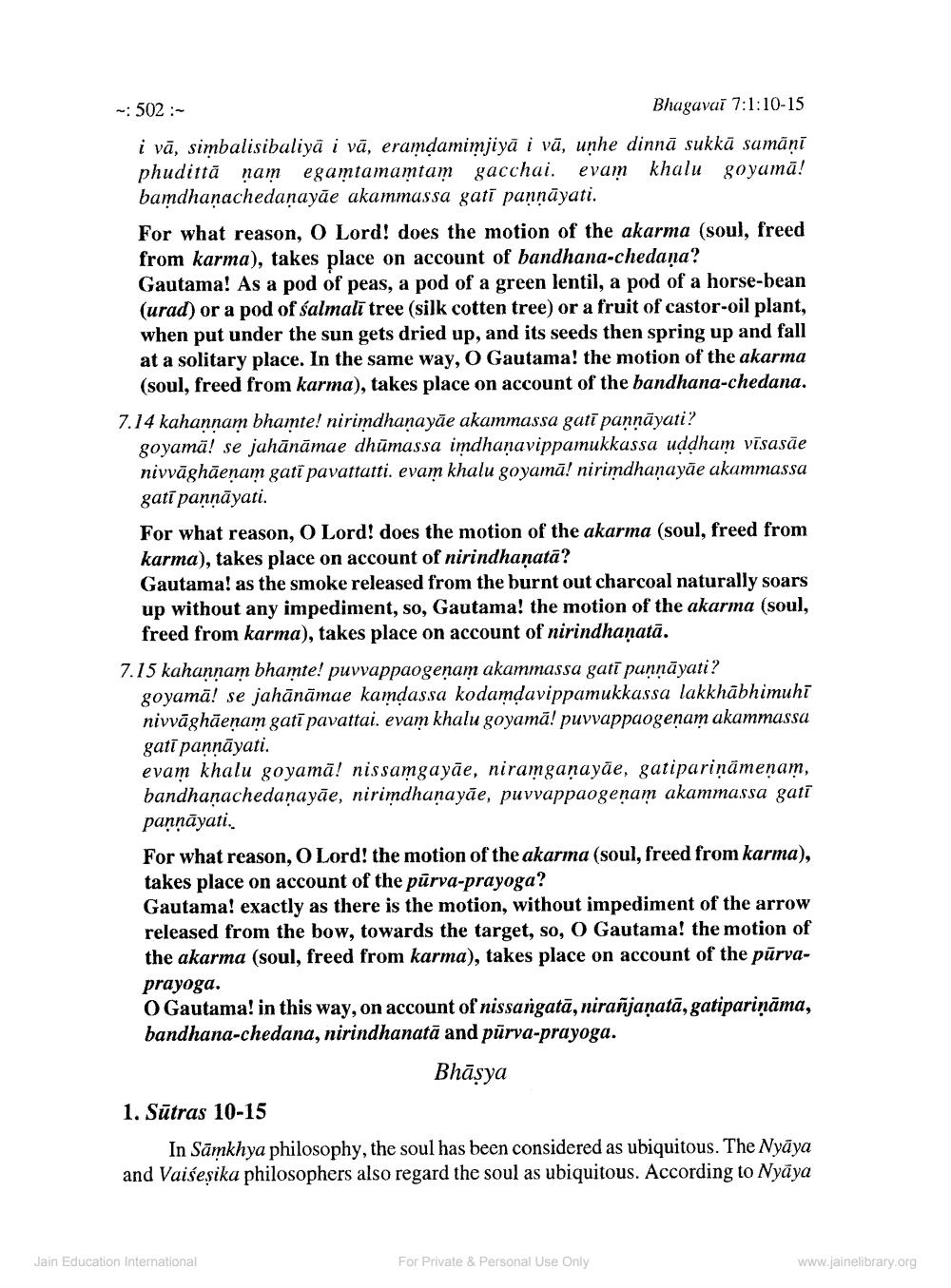________________
- 502 -
Bhagavai 7:1:10-15
i vā, simbalisibaliyà i vā, eramdamimjiyā i vā, unhe dinnā sukkā samāni phudittā ņam egamtamamtam gacchai. evam khalu goyamā! bamdhanachedaņayāe akammassa gati pannāyati. For what reason, O Lord! does the motion of the akarma (soul, freed from karma), takes place on account of bandhana-chedana? Gautama! As a pod of peas, a pod of a green lentil, a pod of a horse-bean (urad) or a pod of salmali tree (silk cotten tree) or a fruit of castor-oil plant, when put under the sun gets dried up, and its seeds then spring up and fall at a solitary place. In the same way, O Gautama! the motion of the akarma
(soul, freed from karma), takes place on account of the bandhana-chedana. 7.14 kahannam bhamte! nirimdhanayže akammassa gati pannāyati? goyamā! se jahānāmae dhūmassa imdhanavippamukkassa uddham visasāe nivvāghāenam gati pavattutti. evam khalu goyamā! nirimdhanayāe akammassa gatī pannāyati. For what reason, O Lord! does the motion of the akarma (soul, freed from karma), takes place on account of nirindhanatā? Gautama! as the smoke released from the burnt out charcoal naturally soars up without any impediment, so, Gautama! the motion of the akarma (soul,
freed from karma), takes place on account of nirindhaņatā. 7.15 kahannam bhamte! puvvappaogenam akammassa gatī pannāyati ?
goyamā! se jahānāmae kamdassa kodamdavippamukkassa lakkhābhimuhi nivvāghāenam gatī pavattai evam khalu goyamā! puvvappaogenam akammassa gati pannāyati. evam khalu goyamā! nissamgayāe, niramganayāe, gatipariņāmenam, bandhanachedaņayāe, nirimdhanayāe, puvvappaogenam akammassa gati pannāyati. For what reason, O Lord! the motion of the akarma (soul, freed from karma), takes place on account of the pūrva-prayoga? Gautama! exactly as there is the motion, without impediment of the arrow released from the bow, towards the target, so, O Gautama! the motion of the akarma (soul, freed from karma), takes place on account of the pūrvaprayoga. O Gautama! in this way, on account of nissangatā, nirañjanatā, gatipariņāma, bandhana-chedana, nirindhanatä and pūrva-prayoga.
Bhāşya 1. Sūtras 10-15
In Sāmkhya philosophy, the soul has been considered as ubiquitous. The Nyāya and Vaiseșika philosophers also regard the soul as ubiquitous. According to Nyāya
Jain Education International
For Private & Personal Use Only
www.jainelibrary.org




